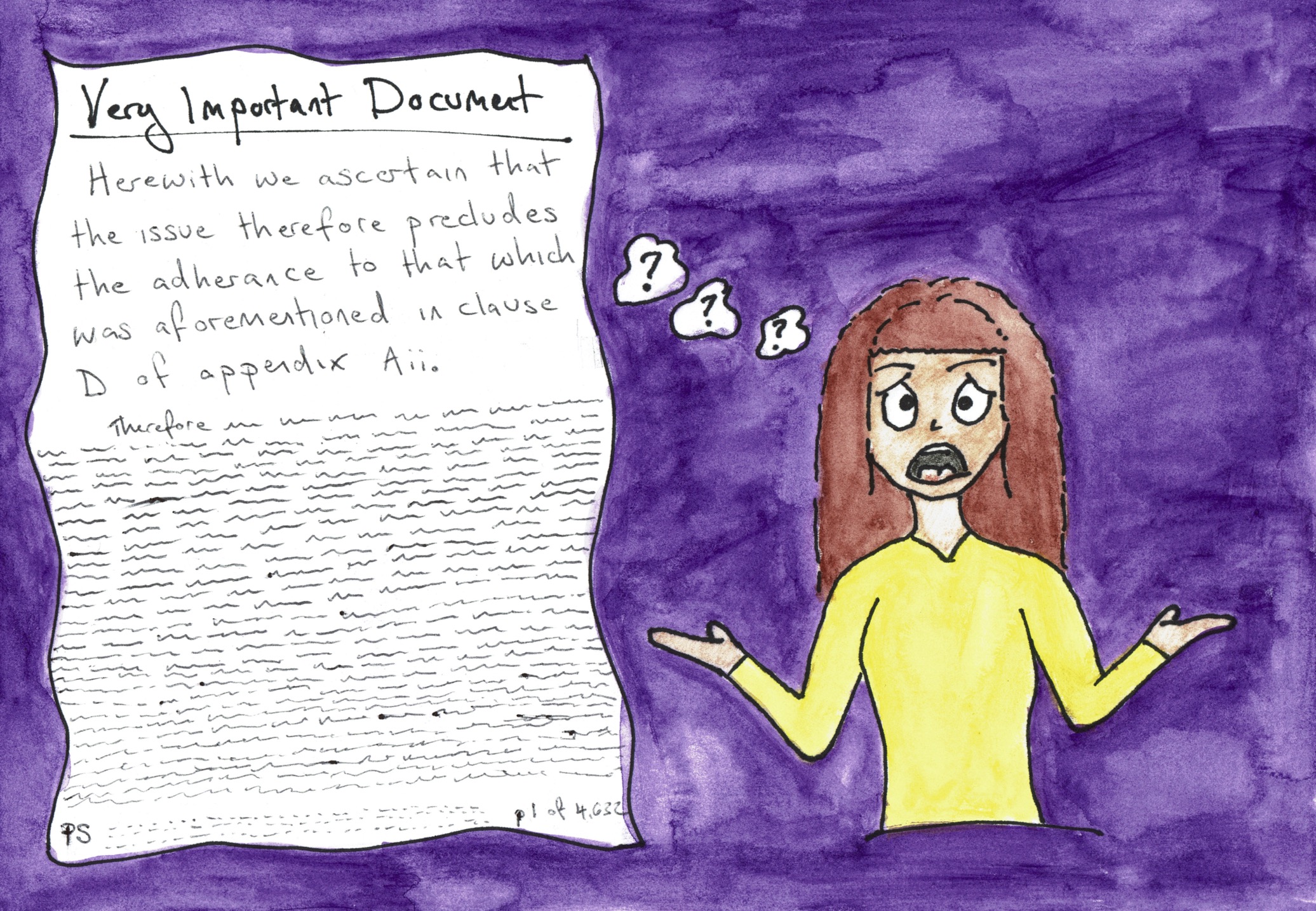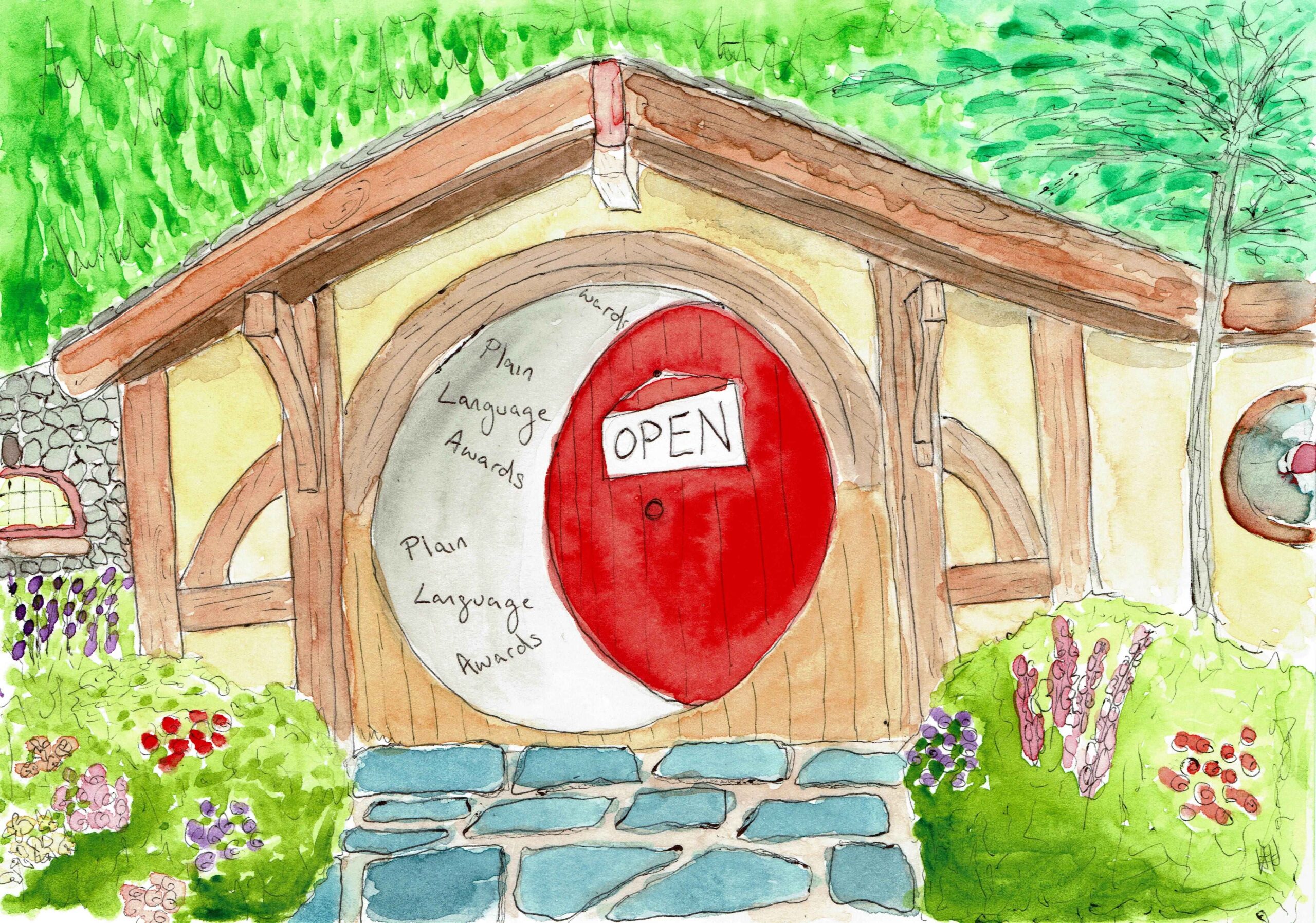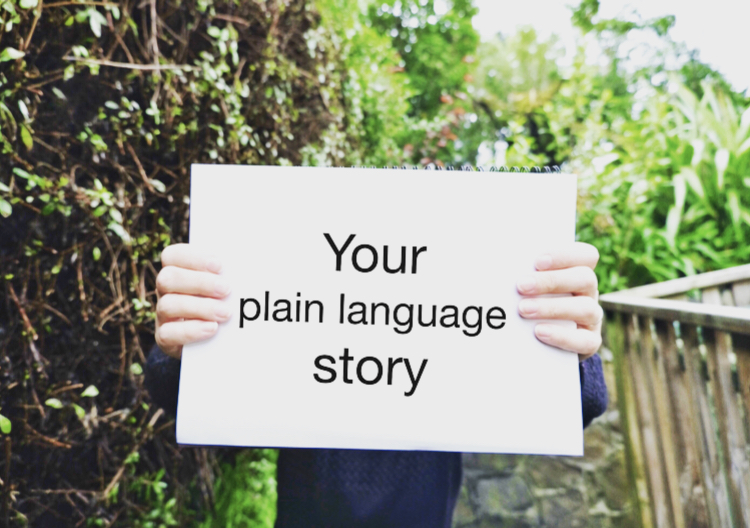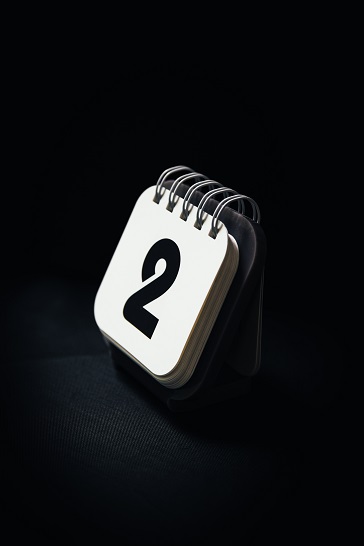
Ever had to sign a contract you couldn't understand? | Image by Hellie Hadfield
Communication: as easy as it seems?
It’s easy to take communication for granted. It seems so natural to many of us.
But imagine, for a moment, you are suddenly dropped somewhere where everyone speaks an alien language — all the signs, information, and applications for assistance are suddenly indecipherable. How would you manage?
At least 17% of New Zealanders speak English as a second language. This means that none of the information around them is in their native tongue.
Access to services should be universal
Now imagine your elderly mother needs medical assistance, but the form she needs to fill in is written in an impossibly tiny font. The words are all squished together, and swimming on the page.
Did you know 1 in 5 Kiwis are blind or partially sighted?
Words matter. How we present them matters too.
Readability is key
And mutilated language can catch out even the most fluent and full-sighted among us.
How about your neighbour, who lost everything in a cyclone and then found that their insurance didn’t cover ‘acts of God’. But because this information was buried in pages and pages of small print, with no margins, at the very end of the policy, they didn’t know?
Or your cousin, who has recently migrated to New Zealand and is trying to correspond with an immigration lawyer. But all the information they are given is written in Elizabethan English?
Or a sleep-deprived young mum, who needs to apply for parental leave pay, but the overly complex website keeps sending her round and round in circles?
This.
Plain language for the win
This is the importance of words, and how they are presented.
This is the importance of plain language.
And the real-world difference it makes.
Get involved
Have you seen a great example of plain language? Or a not-so-great one?
Nominations are open year-round for the People’s Choice categories in the Plain Language Awards.
People’s Choice — Best Plain Language Communication
People’s Choice — Worst Brainstrain Communication
Hellie Hadfield February 1st, 2024
Posted In: Communications

Our newest trustee | Nicola Airey
We’re very excited to welcome Nicola Airey as a trustee for the WriteMark Plain English Awards Trust. Nicola joins current trustees Lynda Harris, Wayne Wright, and Nicola Welby.
With her passion for building meaningful brands, helping them grow through clever marketing, and doing good things for the community along the way, Nicola Airey is a fantastic asset to the team.
She’s worked in a wide range of corporate, government, not for profit and community groups, delivering clever strategies that build business, promote the brand, and positively impact the community. This experience, and her expertise in engaging with stakeholders, nurturing sponsorships, and managing events, will be invaluable.
She’s excited to be joining the Awards team — particularly at a time when clear communication and plain language have never been more important.
‘It is a privilege to be part of the Awards Trust, supporting the improvement of language to improve lives. If we can build the Awards, and more importantly, the profile of the importance of plain language across Aotearoa New Zealand, we can make such a difference. The stories shared by previous award winners of how they have influenced change inspire others. We need more businesses to understand that plain language isn’t a fad. It delivers bottom line benefit and customer experience.’
And Nicola knows what it takes to introduce plain language to an organisation and keep the momentum up. Plain language has always been core to her strategies for communications and customer engagement. At Medical Assurance Society (MAS) she introduced and oversaw a significant programme of work to bring plain language into focus. This effort was recognised when MAS won a number of categories in the 2022 Plain Language Awards.
We’re excited to have Nicola joining us as we take the next steps on our journey to grow the Plain Language Awards.
Welcome, Nicola!
The Plain Language Awards team
Hellie Hadfield December 14th, 2023
Posted In: Communications
Tags: Avocate, Plain Language Awards, Plain Language Awards Team, Trustee, WriteMark Plain English Awards Trust

A fond farewell to our longstanding trustee and chair | Gregory Fortuin
This year we farewell Gregory Fortuin as Chair of the WriteMark Plain English Awards Trust with bucketfuls of gratitude. A staunch supporter of the Awards for years, Gregory has decided it’s time to pass the mantle of Chair on to someone new.
Gregory has always had a passion for making a difference and helping people to transform their lives for the better. A wonderful spokesperson for the Awards on many occasions, Gregory knows how to get straight to the point. Poor communication disadvantages people. Plain language breaks down barriers and makes for a more equitable society.
Gregory continues to serve on many boards and trusts, both in business and in the community. You’ll likely continue to hear him in the media commenting on important issues that affect us all.
We are so grateful for everything Gregory has done for the Plain Language Awards as trustee, chair, plain language advocate and friend. We wish him well on the next part of his journey.
Kia ora Gregory
The Plain Language Awards team
Hellie Hadfield December 14th, 2023
Posted In: Communications
Tags: advocate, WriteMark Plain English Awards Trust

Our much-loved patron | Chloe Wright
We are deeply saddened by the news of Chloe Wright’s passing this weekend. As Patron of the WriteMark Plain English Awards Trust, Chloe was a passionate advocate for plain language and a dear friend.
We are immensely grateful for all that she did to support the work of the Trust. Chloe’s enthusiasm and energy was infectious. She gave much and inspired more.
Kua hinga te tōtara o Te Waonui a Tāne | The tōtara has fallen in the great forest of Tāne (Hear an explanation of this Māori proverb: https://lnkd.in/gF5cVqxJ)
Read about our patron on the Plain Language Awards website https://lnkd.in/g8ZYTZX6 😢
Read the news article on sunlive.co.nz https://lnkd.in/gf5JDUik
Hellie Hadfield September 24th, 2023
Posted In: Communications

Entries are still open! | Image by Hellie Hadfield
It’s down to the wire for entries, with the submission deadline tomorrow at midnight. If you’re still working away on your entry, here are seven top trophy tips to get a great result.
Here’s what the judges said!
- Make sure your submission stands out by using plain language and including visuals as well as words. Don’t just dump a lot of examples on the judges and assume we’ll get it. Rather carefully pick and choose examples and deliberately walk us through them — make the connections for us.
- Write for time-poor scanners who aren’t lawyers (this goes for all documents, but especially the technical ones!).
- Imagine you are in a room while the judges are reading out your entry and your comments, and everyone is looking at you.
- Even if you’re racing to meet the Awards deadline, make sure your entry and your comments are a joy to read. This is the ultimate evidence that you truly write for your reader.
- Push the envelope. Break down people’s assumptions of how your type of document or website ‘should’ look.
- (In the legal category), avoid legal jargon. If there’s a plain English equivalent that won’t jeopardize your legal rigour, use it!
- Really take your time to comment on your entry. If you explain what you’ve done and why you’ve done it, it helps me as a judge to get the bigger picture.
For more top trophy tips, check out our website, or watch our Q&A with Head Judge Simon Hertnon.
Trophy Tips webpage
Trophy Tips Q&A webinar
Entries close tomorrow night, so be quick and enter before they close!
Enter on our website
All the best with your entry!
Hellie Hadfield August 1st, 2023
Posted In: Communications

Your plain language story | Image by Hellie Hadfield
Share your plain language story with us
Here at Plain Language Awards HQ the only thing we love more than all things clear and simple is hearing from you!
So, tell us your plain language story. Upload a short video to our website, solo or grab some friends, and have fun — anything goes! (Well, almost!)
Keep reading for more information. Or jump straight in…
Upload your video
Let us know why plain language is important to you and your work
Have you created a seriously simple document, and want to share your journey? Or do you have a passion for plain language, and want to share the love? Maybe you’re entering the Awards this year, and want to show off your efforts. Or perhaps plain language has had a positive impact on you somehow.
We love hearing your stories, whether you’re bragging about your awesomeness or sharing what drives you. So, whatever your reason for sharing, we want to hear from you.
Here are some thought starters for you
Why did you choose to work through a plain language lens?
And did it create positive results?
Maybe some surprising ones?
Who benefited?
What did you enjoy?
What obstacles did you face?
How did you overcome them?
We’re all in this together, so let’s celebrate each other’s wins, commiserate the fails, and help each other along the way.
Think you can’t? Sure you can…
Not entering the Plain Language Awards this year? No worries! You can still enter a story video.
Camera shy? Don’t love technology? We’ve got you covered. How about a slide show with a voiceover? Or just shooting it on your phone? Head to our website for some more sage advice and a great how-to video by Jonny.
How to make a great video
Thank you for joining us
We truly believe in the power of words for good, and love that you have chosen to join us. So thank you for putting yourself out there, for sharing your story, and for raising the bar for clear communications. We can’t wait to hear your story!
Upload your video
Hellie Hadfield May 9th, 2023
Posted In: Communications

Ready Set Go! | Image by Hellie Hadfield
Newsflash: You can now collaborate on entries! Just hit the ‘manage collaborators’ link at the top of the entry form, and invite colleagues to work with you.
That’s right, we’ve gone live!
Entries are now open for the 2023 Plain Language Awards.
Our virtual postboxes at Awards HQ are waiting to be filled to the brim with your concise reports, clear technical documents, accessible websites, and simple sentences. As always, you can choose from 13 categories, so hop to it!
Short on time? Here are some easy ones…
Have you already transformed something old and gnarly into something clear and shiny? Whether a whole document or website, or merely a troublesome sentence, we’ve got you covered. Check out the Best Plain Language Turnaround and Best Plain Language Sentence Transformation categories.
Documents, plain and simple
The Best Plain Language Document category celebrates beautiful business documents that are clear on purpose and content. Enter yours in the category for public sector or private sector.
Maybe you and your team have been grappling with an annual report, making your end-of-year business story easy for all to absorb. If so, be sure to check out the Best Plain Language Annual Report category.
Or maybe you’ve created a masterful document that banishes legal jargon and uses plain language? If your document covers legal, financial, or compliance topics, check out Best Plain Language Legal Document.
Epic website?
For the technical whizzes and content enthusiasts, why not enter your super easy-to-use website in the Best Plain Language Website category?
Masters of simplification
Are you, or someone in your company, the go-to for simplifying technical topics and communicating with clarity? Then enter a portfolio in the Best Plain Language Technical Communicator.
Maybe an individual or a team in your organisation really stands out as having championed plain language changes? Maybe they’ve run workshops, created some resources, or led organisation-wide initiatives? Sounds like they should be put forward for the Plain Language Champion — Best Individual or Team.
Or, has your organisation taken things a step further, and successfully transformed the writing culture of the workplace? If so, prepare your entry portfolio for the Plain Language Champion — Best Organisation category.
Or nominate someone else
Seen someone else do an awesome job? Maybe your insurance company has a super clear website, or a friendly government agency communicated in a top-notch manner. If so, why not nominate them for People’s Choice — Best Plain Language Communication. They deserve to be celebrated!
If, on the other hand, you have come across some truly diabolical discourse, a real humdinging head-scratcher, why not enter it in People’s Choice — Worst Brainstrain Communication. That way, you’ll help to bring about a positive change.
So what are you waiting for?
The Awards categories have something for everyone and every type of business writing. So what are you waiting for? Get entering!
Enter the 2023 Plain Language Awards
Hellie Hadfield May 1st, 2023
Posted In: 2023 Plain Language Awards, Communications
Tags: clear communication, plain language, Plain Language Awards

Kate Thompson, Tatiana Mes, and Lynda Harris
This Thursday, the Plain Language Association International (PLAIN) is hosting their first webinar of 2023, featuring our very own founding sponsor and two previous Awards winners.
Lynda Harris
Lynda is the CE of Write Limited and is our founding sponsor here at the Plain Language Awards. Having championed plain language principles for over three decades, who better to introduce the New Zealand Plain Language Act that comes into fruition in just a few days’ time? Lynda will also be advocating using words as a force for good in the world.
Kate Thompson
Last year, Kate led her team at thinkstep-anz to victory in the category of Best Plain Language Document — Private Sector. The document, A Life Cycle Assessment of New Zealand Mussels and Oysters, is a great example of a straightforward, easy-to-read paper. And an impressive feat, given it was whittled down from a complex, 135-page technical report. Kate will share why the judges were understandably impressed.
Tatiana Mes
Also in 2022, Tatiana and her team at Mercer (N.Z.) Limited took out top spot for the Best Plain Language Website with www.seatatthetable.co.nz. The judges loved the personality infused into an easy-to-navigate site, while Tatiana emphasised the importance of inclusivity — both in terms of the content and accessibility of the website. She will be talking through the concepts behind this in the webinar.
The webinar promises to be a wonderfully insightful session, and a great place to pick up some tips for entries into this year’s Awards. So, tune in to discover the secrets behind a winner in clear communication!
Find out more, or register for the webinar
Nicola Welby April 18th, 2023
Posted In: Communications

You’ve now got till 5pm on Thursday, 4 August to enter the Plain Language Awards | Photo by Makarios Tang on Unsplash
Did you miss the deadline but still have something to enter? We’re giving you one last chance!
We’re extending the closing date for entries so you have little extra time to enter the Plain Language Awards.
Entries for the 2022 Plain Language Awards will now close at 5pm on Thursday, 4 August.
Nominate the good and the bad for the People’s Choice
Make a difference! Dob in a bad document, or praise an easy-to-read one! The more the public speak up and demand plain language, the easier it is for us all.
Power to the people — vote for plain!
Have you read something that strained your brain? Nominate it!
Get involved with the People’s Choice
It only takes a sentence!
If you’re short on time, enter a few beautifully transformed sentences for the Best Plain Language Sentence Transformation award.
Well-written sentences create a fine reading experience
Enter your transformed sentences by 4 August
Is your website based on plain language principles?
The Best Plain Language Website category recognises the best examples of websites that illustrate the principles of plain language. The judges are looking for highly usable, reader-focused website or intranet content. Public and private sector organisations can enter.
Meet the 2021 public sector winner, Ministry of Social Development
Meet the 2018 private sector winner, Xero
Meet the 2018 public sector winner, Auckland Council
Enter the Best Plain Language Website by 4 August
Get the recognition you deserve for your clear communications
The Plain Language Awards are one of New Zealand’s leading industry awards. Imagine how good you and your team would feel if you became a finalist … or even a winner?!
Find out more about our Awards categories
Get some inspiration from our past winners

Nicola Welby August 3rd, 2022
Posted In: 2022 Plain Language Awards, Best Plain English Sentence, Best Plain Language Sentence Transformation, Communications, Industry awards, People's Choice, People's Choice awards

You’ve now got till 5pm on Tuesday, 2 August to enter the Plain Language Awards | Photo by charlesdeluvio on Unsplash
We know what it’s like to be busy, and how difficult it can be to meet deadlines when the pressure’s on. That’s why we’re extending the closing date for entries so you have little extra time to enter the Plain Language Awards.
Entries for the 2022 Plain Language Awards will now close at 5pm on Tuesday, 2 August.
Get the recognition you deserve for your clear communications
The Plain Language Awards are one of New Zealand’s leading industry awards. Imagine how good you and your team would feel if you became a finalist … or even a winner?!
Find out more about our Awards categories
Get some inspiration from our past winners
Nominate the good and the bad for the People’s Choice
Make a difference! Dob in a bad document, or praise an easy-to-read one! The more the public speak up and demand plain language, the easier it is for us all.
Power to the people — vote for plain!
Have you read something that strained your brain? Nominate it!
Get involved with the People’s Choice
It only takes a sentence!
If you’re short on time, enter a few beautifully transformed sentences for the Best Plain Language Sentence Transformation award.
Well-written sentences create a fine reading experience
Enter your transformed sentences by 2 August
Nicola Welby July 29th, 2022
Posted In: 2022 Plain Language Awards, Communications, People's Choice awards
Tags: Best Plain Language Annual Report, Best Plain Language Document, Best Plain Language Legal Document, Best Plain Language Sentence Transformation, Best Plain Language Technical Communicator, Best Plain Language Turnaround, Best Plain Language Website, Brainstrain, People's Choice, Plain Language Awards












